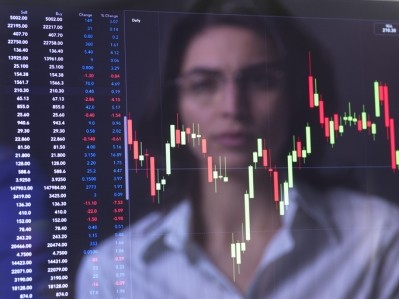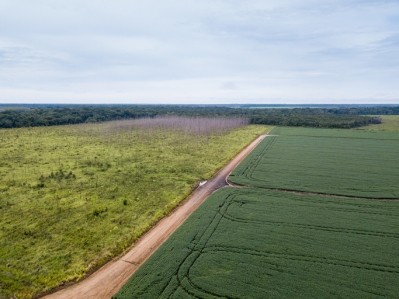Special Edition: Blockchain in the feed industry
Blockchain technology making its presence felt in agri-commodity trading

The Covantis blockchain platform, which is aiming to making global agri-commodity trade simple, secure, and efficient, went live in February this year, two years after being created by agribusinesses players with the aim of digitalizing agricultural shipping transactions.
There are over 30 entities signed up as initial users of the platform, including its six founding members – Archer Daniels Midland (ADM), Bunge, Cargill, Cofco, Louis Dreyfus Company and Viterra.
The initial use case covers bulk shipments of corn and soybean from Brazil exported worldwide. But the plan is to extend that coverage to a wider range of grains and oilseeds and to other origin markets.
The ultimate goal of Covantis is to optimize export trade execution processes by connecting shippers, traders, and charterers. It wants to eliminate paper-based post-trade processes to boost efficiency and cut operational risks for bulk shipments of agricultural goods.
Established as an independent legal entity in March 2020, with a base in Geneva, Switzerland, the initiative chose ConsenSys, an Ethereum blockchain technology company, as the lead technology partner to develop its set of digital solutions in January last year.
Covantis tested the platform midway through 2020, conducting a parallel run from early July to mid-August to get feedback, with nearly 30 participants using a test version of the platform, and involving the transportation of 4 million tons of soybeans and corn.
Digitalizing core processes
A spokesperson for Covantis told us last year that this initial phase of operation will focus on “digitalizing the core processes involved in the international shipment of grains and oilseeds in bulk such as vessel nominations and substitutions as well as any other contractual notices, string visibility, documents by-pass and circles settlement, appointment of third-party providers, documentary instructions, issuance of drafts and original shipping documents.”
Those transactions will all be enabled through a common communication and notifications platform.
“In the future, we envision expanding to further functionalities, enabling modernization of the entire execution process from A to Z such as contract management, settlement, bank presentation, electronic documents. We foresee expansion into more commodities. Some of those will be achieved through partnering with complementary platforms and systems.”
Commenting on the need to streamline such processes, the Covantis representative told us:
“We experience a lot of time lost and inefficiencies in the way we conduct our business at the moment, there are also a lot of manual errors and subsequently re-work. This platform is created for the industry by the industry. The platform aims to help people work in a more efficient and accurate way, to reduce the time spent in exchanging e-mails, repeating information, filing, … and allow people to focus on solving complex logistics issues thus adding value to our customers.”
Another new entrant
Meanwhile, last November, another Switzerland based company, Cerealia SA, following two years of pilot testing, launched a blockchain trade and financing platform for global agricultural trading, allowing companies to trade wheat, sorghum, and other commodities.
The commercial rollout followed extensive prelaunch trial testing with companies based in Algeria, Brazil, Dubai, Japan, and Ukraine.
The company said at the time of the launch that it was the first developer to combine the need in the international Russian wheat market for a fast trading platform with a more thoroughly traceable execution program.
“Traders can now be 100% certain they really did the trade, versus traditional over-the-phone brokerage,” Andrei Grigorov, Cerealia’s chief executive officer, said in the statement. “Instantly, they have digitally signed contracts and blockchain-registered records ‘forever.’”
Since November 2020, the platform has attracted offers and buying interest for about 6 million tons of grain, but it currently supports only bilateral deals between physical grain traders, reported Bloomberg last month.
Geographical reach
While Cerealia started off with grain deals in the Black Sea region it has since expanded to markets including Brazil and Egypt. The company, also present in Ukraine, will soon have a representative in Singapore and is targeting sub-Saharan Africa next.
The next step is to start a system that allows financial institutions and speculators to take part without having to take physical delivery of the grain, Filipe Pohlmann Gonzaga, chief operating officer of Cerealia, told Bloomberg.
The Swiss firm is also piloting the use of technology that will allow grain to be traded using virtual tokens. Cerealia has created a non-fungible token backed by 30,000 metric tons of Mexican white corn. The token was issued by Mercanta for grain stored at the Triple T terminal, both owned by Mexico’s Grupo Ceres.
Token deals, said the company, could help eliminate paperwork and costs associated with many grain transactions that take place over the counter. The idea is that trade houses and other grain holders can issue tokens for their supply, which would then be traded on Cerealia’s blockchain platform without the need for physical documents that still underpin the bulk of commodity deals.














